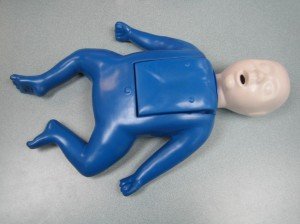Once a child develops a rash, it is often a cause for concern for many parents. In some cases, the rash has a specific cause and once the exact cause is determined and dealt with, it heals on its own. On the other hand, some rashes does not have a cause and even lingers which causes discomfort to the child and aesthetically unpleasant. There is a possibility that this might be facial eczema.
Close look on facial eczema
Eczema is basically a type of dermatitis that involves inflammation of the skin with an undetermined cause. Take note that there might be a genetic tendency for eczema where children with parents who have eczema, hay fever or asthma are more likely to end up with the skin condition.
Some infants and young children are likely to experience eczema. Among children who have eczema, most might show signs of eczema during the first year of life while some will experience the signs and symptoms of the skin condition in the first 5 years.

What are the signs and symptoms?
The typical symptoms of facial eczema include itchy, dry skin. In most cases, the skin becomes scaly or exhibits small-sized bumps that weep clear liquid if they are scratched open. There is also swelling and redness of the affected area.
The general locations where eczema occurs tend to vary by age. Infants and young children often exhibit eczema on the face, knees and outside of the elbows. As for older children and adults, they have eczema on the feet and hands, arms and back of the knees.
Treatment of facial eczema
Since eczema has no known cure even today and the exact cause is still uncertain, exposure to certain substances might cause the condition to flare-up. Observation of the child can help the doctor determine the exact source of the flare-ups so that they can be avoided.
The doctor is likely to prescribe a topical treatment for the facial eczema. This should be applied as directed and monitor its effectiveness. Depending on the severity of the flare-ups, the doctor might also prescribe oral medications. In some circumstances, phototherapy can be used on adults and children ages 12 years and older.
Important considerations to bear in mind
Some children who end up with facial eczema exhibit full resolution of the condition by the time they reach 2 years old. When an infant or child develops eczema, the skin condition typically improves over time.
Once you suspect that a child has eczema, a doctor should be consulted to come up with a suitable treatment plan for the child. It is recommended to avoid using harsh or strong soaps, shower or bathe using lukewarm water, dress the child with clothes made out of light fabrics, use light bedding and observe good skin care at all times.
